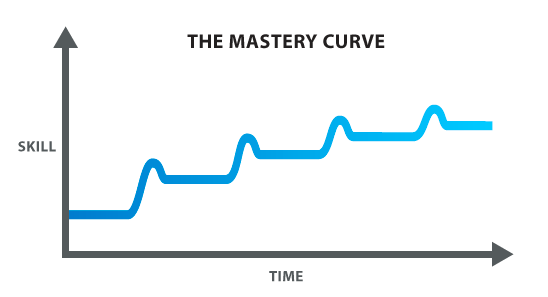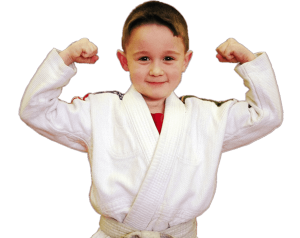On Tuesday night I had a chance to catch up with a few of the parents after their holidays etc. and as is quite typical this time of year I heard a few tales of the dreaded ‘back to school blues’
Parents often dread those first few days back to school, and teachers are faced by a sea of grumpy faces in class wondering what on earth happened to those smiley energetic kids from a few weeks ago. I’m sure when it came to monday morning, or resuming their regular activities after a holiday break many of you heard those words: “I don’t wanna go”.
There’s almost certainly no rational reason for that other than a knee-jerk reaction to the challenge of getting back into a routine. The back-to-school season is a difficult time for kids. Giving up the relative freedom of summer to go back into a regulated environment is a tough transition for them.
Think about it – At the school we’ve only had a couple of weeks off, but when we also factor in your family holidays etc. too, many of the students have actually not been in class for three or four weeks, perhaps even longer. That’s quite a long time for a youngster.
During their holidays they’ve had less boundaries, probably lots of late nights, lie-ins, and more opportunity to indulge themselves. Now they’re back to school, all of a sudden they feel like ‘we’ have taken all their freedom away. Suddenly the grown-ups are making them do stuff. Shock horror! They aren’t allowed to play all day, they have to go to bed early, get up early, go to boring school all day, do their homework etc.
They don’t see the bigger picture, to them, they feel they’ve lost all their freedom, and somehow it’s our fault. Adults always make us do boring stuff eh! As they have limited ways to feel in control, so they tend to resort to the only tactic they know to exert their will – those dreaded words “I don’t want to” – which roughly translates as I’m not going to do anything you want me to.
Kids live in the moment. They don’t think about next week, next month or next year. All they see is that “I am having fun here and now on my xbox, or hanging out with my friends doing nothing. Why should I get up and do something else?”
As adults, while we can understand this feeling, we also know it is not what is best for them. Especially, if they are facing a new challenge. It is our job to think for the long term and see past the next 5 minutes, hours, days or years. I know it is hard at times, but it’s important to remember the benefits they are gaining which we can understand as adults, even if they don’t see them (yet) as children.
Why did you sign your child up for martial arts training in the first place? Was it just because their best friend was training, or because he saw the Power Rangers on TV? Maybe that’s why they started, but I’d bet there were other more substantial reasons too. You probably thought that the type of discipline provided by the training, the respect for self and others, along with the physical activity, not to mention the very useful skill of self defence would enhance your child as she encountered a world which is not as kind, not as safe, and not as well-mannered as it once was, right?
This cannot be overstated – you made a decision to provide your son or daughter with an set of life skills that cannot be easily attained elsewhere.
Let’s consider another perspective:
What if your child said, “I don’t want to go to school anymore!” You wouldn’t dismiss that easily or bow down to their request. You might investigate if there was a reason or a problem to address, but most likely, you’d explain that school is an essential part of life, and they’ll really appreciate it later, so yes, tomorrow morning they do have to go and take that maths test!
Have you ever tried to learn a musical instrument? It takes a long time to develop the skills necessary to understand, appreciate, and play an instrument, but we persevere. Martial arts are no different in this regard. If we left the decision up to our children, we would never have another musician. Ever. No child would ever voluntarily practice the piano with the necessary dedication it takes to build proficiency. No child would ever attend a music lesson if she thought for one moment missing practice was an option!
You are the parent, and you have to be the stable force in your child’s life.
The whims of your children will come and go as easily as daydreams. If you are likely to allow their flighty thoughts of fancy to sway your decisions relative to their safety, self-esteem, and discipline, then what next? “Mum, I don’t like wearing a bike helmet.” “Dad, why do I need to learn geography, I’ll never use this stuff.” The list of “I don’t see the point” topics is never ending and you’re going to have to draw the line somewhere. Safety, self-esteem, and self-discipline seem to be a pretty good place to start.
Thanks for sticking with the long post, but it’s a topic that we all come up against this time of year, and often in the new year/post-christmas blues too so I thought it was worth getting something down to think about.
In the long run we all know that the kids love it once they get to class. Much like when we as adults get ourselves off the sofa and go to the gym, or tackle that bit of DIY that needed doing in the garden. It doesn’t matter what their mood is when they come through the door to start the class. What matters is how they feel when they’ve just finished!
As always, if we can help, don’t hesitate to ask. That’s what we’re here for!









 Here are the senses people, especially children and teens, need in order to nourish their self-esteem:
Here are the senses people, especially children and teens, need in order to nourish their self-esteem: